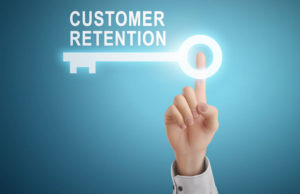
Marketing will shape the customer experience by 2020, based on a recent Marketo study of nearly 500 chief marketing officers and senior marketing executives worldwide. The Economist Intelligence Unit conducted the research on behalf of Marketo.
Eighty-percent of the respondents believed their departments would exercise significant influence over business strategy by 2020, and 78 percent expected to have the same influence over corporate technology decisions.
More than half the respondents believed marketing in coming years would be impacted most heavily by a combination of the accelerating pace of technological change, a shift to mobile lifestyles, and the explosion of the Internet of Things.
The survey results suggest a number of changes are on the horizon:
- Mobile devices and networks, personalization technologies and the IoT will have the biggest impact on marketing organizations by 2020.
- The billions of possible interactions enabled by the IoT will weaken the mass media further, as companies will connect directly with customers through technology and personalization rather than through media and advertising.
- Loyalty and customer acquisition will be tied very closely to pioneering new and emerging technologies.
- Finally, marketers will dominate corporate business strategy and IT by 2020.
Expanding on the Findings
“The advent of technology — specifically marketing automation — enables companies to have these two-way personalized conversations with customers at scale,” remarked Marketo CMO Sanjay Dholakia.
“As technology evolves — such as the rise of virtual reality, augmented reality and the IoT — the number of potential interaction points with customers exponentially multiplies,” he told CRM Buyer. That makes it critical for companies to have “a single customer interaction system of record to effectively and efficiently conduct these conversations.”
Mass media will transform, as shown by the increasing inclusion of digital calls to action in traditional mass media advertising, such as on billboards and in TV commercials, Dholakia suggested.
Customers will interact more with brands across social media, the Web, mobile apps and the mobile Web because “these channels allow for greater personalization,” according to the Marketo survey.
The Problem With IoT Dreams
Whether the IoT can help advance marketing is open to question.
“Just because a consumer’s refrigerator or dishwasher is connected to the Internet does not mean the consumer has a relationship with the brand that produces the appliance,” observed Larry Chiagouris, a professor of marketing at Pace University.
“Most consumers will ignore much of the connectivity until real benefits are delivered to them via the Internet and the things concerned,” he told CRM Buyer.
Marketo is “way aggressive in terms of the timeline,” noted Rob Enderle, principal analyst at the Enderle Group.
“To get where they say companies will be by 2020, we have to be much further than we already are. The direction is correct, but the timing’s off by an order of magnitude,” he told CRM Buyer.
As the IoT progresses, the sensors deployed “will know what you’re doing and where you are,” Enderle noted, “but those data streams are not well defined yet, and they have to flow into a common service, and the marketers have to get access to that data in an uncompromised form.”
Security will continue to be an issue, and the IoT will enable further DDoS attacks, predicted Lamar Bailey, senior director of security R&D for Tripwire.
“The number of connected devices is expected to rise to 4.3 per person by 2020,” he told CRM Buyer. “Couple that with increasing Internet speeds, and it’s a recipe for massive debilitating attacks in the future.”
The Marriage of Marketing and Technology
Customers “are the lifeblood of any business — from their acquisition through to their advocacy on a brand’s behalf,” Marketo’s Dholakia said. By 2020, loyalty, retention, cross-sells and upsells “will become the domain of marketing [that] becomes essential to a much bigger transformation around the customer.”
Marketing will take the leadership role “only when marketers demonstrate that they understand how to leverage tech developments and create real ROI,” contended Pace University’s Chiagouris. “Right now, the IT professionals are in the driver’s seat. Executives from the tech companies, including Oracle and Adobe, are driving the process.”
























































